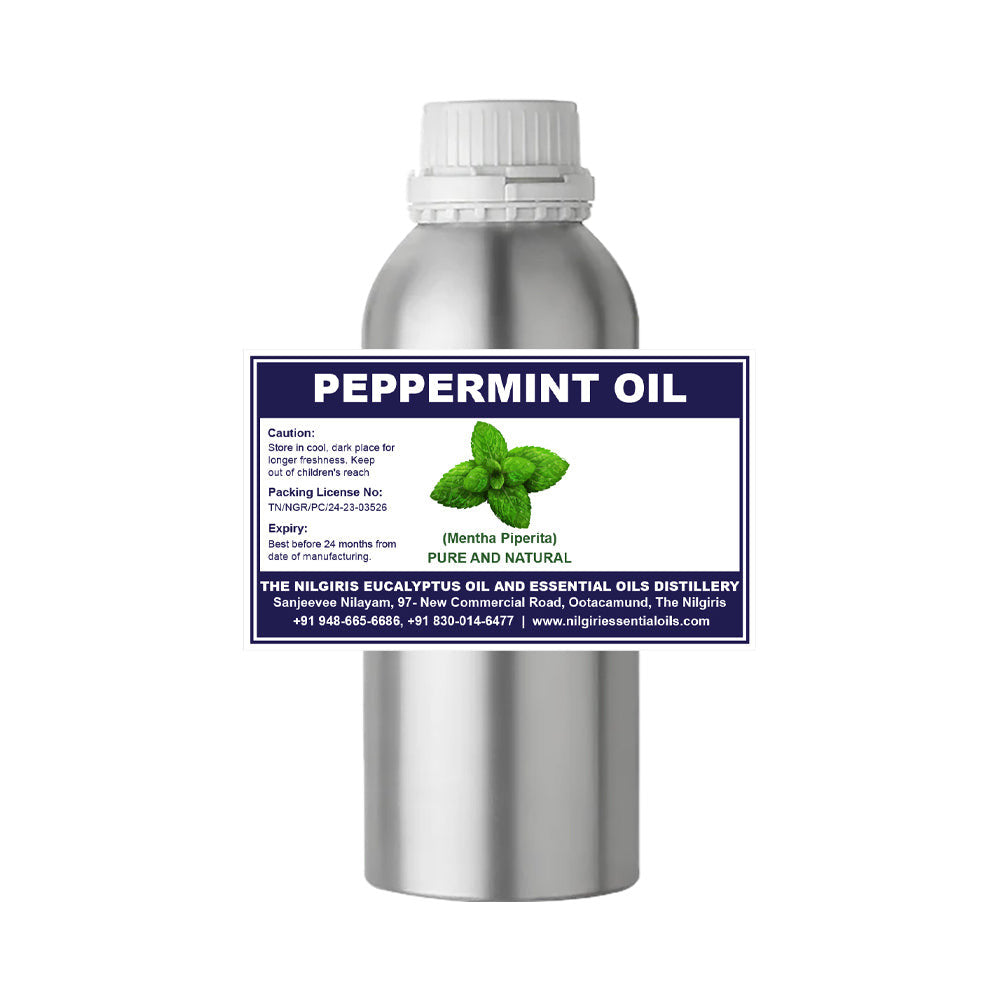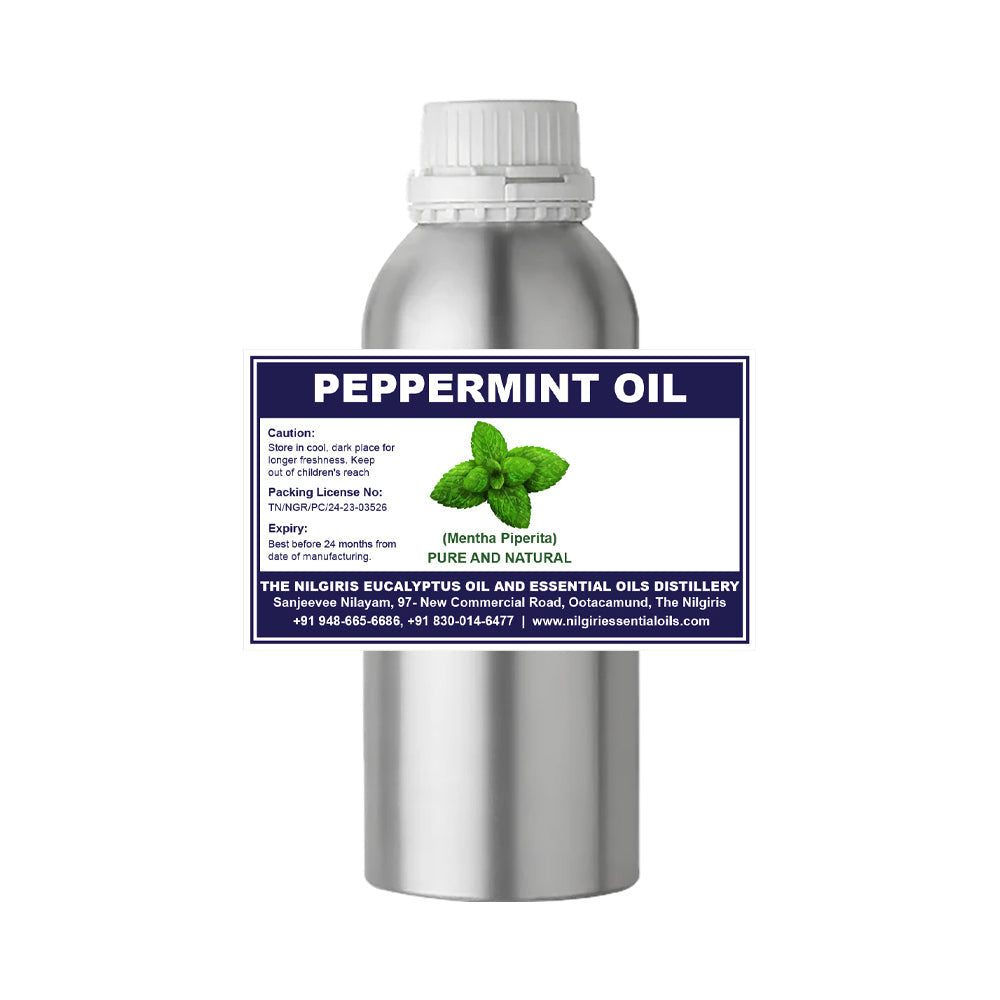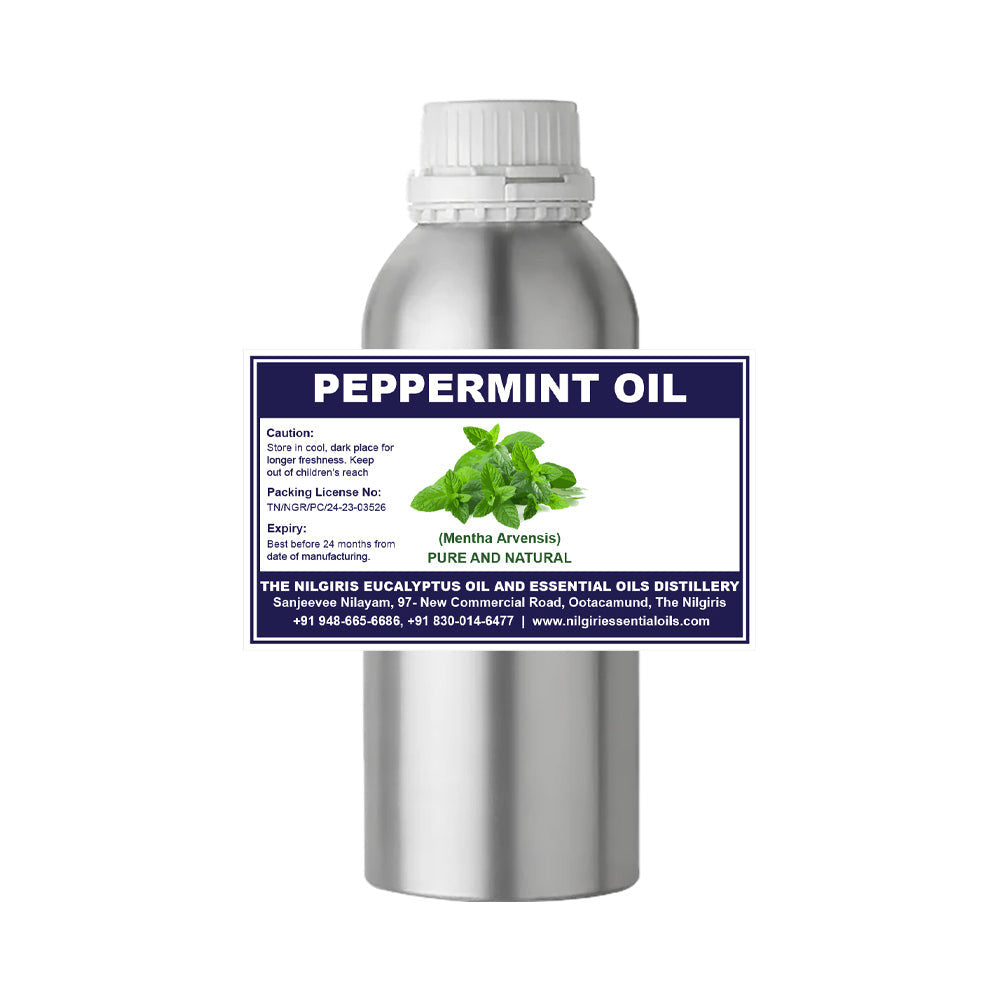Description
Peppermint oil is a potent essential oil derived from the leaves of the peppermint plant, scientifically known as Mentha piperita. It is extracted through steam distillation of the fresh or dried leaves, resulting in a clear, colorless oil with a strong, refreshing aroma. Peppermint oil contains high levels of menthol, menthone, and menthyl acetate, which contribute to its characteristic cooling sensation and therapeutic properties. It has a long history of use in traditional medicine for its various health benefits and is widely utilized in aromatherapy, personal care products, and culinary applications.
Benefits:
-
Digestive Aid: Peppermint oil is well-known for its ability to soothe digestive discomforts such as indigestion, bloating, and gas. It helps relax the muscles of the digestive tract, relieve spasms, and promote healthy digestion. Peppermint oil can also alleviate symptoms of irritable bowel syndrome (IBS) and other gastrointestinal issues.
-
Headache Relief: The cooling and analgesic properties of peppermint oil make it effective for relieving tension headaches and migraines. Applying diluted peppermint oil to the temples, forehead, or neck can help reduce pain and discomfort associated with headaches. Inhaling the aroma of peppermint oil can also provide relief from headaches.
-
Respiratory Support: Peppermint oil has decongestant and expectorant properties that help clear the airways and relieve respiratory congestion. Inhaling steam infused with peppermint oil can help alleviate symptoms of nasal congestion, sinusitis, and bronchitis. Peppermint oil is also effective for relieving coughs and sore throats.
-
Mental Clarity: The invigorating aroma of peppermint oil can help improve mental clarity, focus, and concentration. Inhaling peppermint oil or using it in aromatherapy can help sharpen the mind, boost energy levels, and promote alertness. It is often used as a natural remedy for fatigue and mental fog.
-
Pain Relief: Peppermint oil possesses analgesic and anti-inflammatory properties that make it effective for relieving muscle pain, joint pain, and tension. Massaging diluted peppermint oil onto sore or achy muscles can help reduce pain and inflammation, promoting relaxation and relief.
How to Use:
-
Aromatherapy: Add a few drops of peppermint oil to a diffuser or aroma lamp and diffuse it in the air to create a refreshing and invigorating atmosphere. Inhale deeply to experience its stimulating and energizing effects, especially during times of fatigue or low energy.
-
Topical Application: Dilute peppermint oil with a carrier oil such as coconut oil or almond oil before applying it to the skin. Massage the diluted oil onto areas of tension, soreness, or discomfort to promote relaxation and pain relief. Avoid sensitive areas and mucous membranes.
-
Steam Inhalation: Add a few drops of peppermint oil to a bowl of hot water and inhale the steam to clear nasal congestion and relieve respiratory symptoms. Cover your head with a towel to trap the steam and inhale deeply for several minutes.
-
Oral Health: Add a drop of peppermint oil to a glass of water and use it as a refreshing mouthwash to freshen breath and promote oral hygiene. Peppermint oil can also be added to toothpaste or used in homemade mouthwash recipes.
-
Cooking: Use food-grade peppermint oil to flavor culinary dishes such as desserts, beverages, and savory dishes. Add a drop or two of peppermint oil to recipes for a burst of minty freshness and flavor. Start with a small amount and adjust to taste.
Always perform a patch test before using any essential oils or carrier oils on your skin to check for any allergic reactions. Additionally, pregnant or nursing women and those with certain medical conditions should consult a healthcare professional before using essential oils and carrier oils.
Bottle Size & Packing

30 ml
Glass

30 ml
Aluminium

150 ml to 1 Litre
Aluminium

5 Litres / Kgs
HDPE Can

35 Litres / Kgs
HDPE Can

200 Litres / 180 Kgs
GI Barrel



